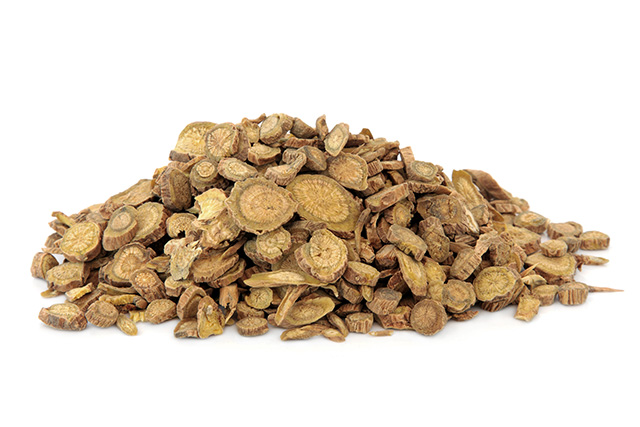Investigating the apoptopic and autophagic effects of Scutellaria Radix in non-small cell lung cancer
04/16/2020 // Evangelyn Rodriguez // Views
Tags: alternative medicine, anti-cancer, cancer cures, cancer solutions, cancer treatments, Chinese medicine, chinese skullcap, goodcancer, goodhealth, goodmedicine, goodscience, herbal medicine, Herbs, lung health, natural cures, natural medicine, non-small cell lung cancer, research

- The root of Scutellaria baicalensis (Chinese skullcap) is an herb traditionally used in Asian countries to treat inflammatory diseases.
- Studies show that SR exhibits anti-cancer activities against various types of tumors.
- The researchers reported that SR treatment suppressed the viability of two NSCLC cell lines, namely, H358 and H2087 cells.
- Western blot assays showed that SR increased the expression of key factors of apoptosis, such as Bcl-2-associated X protein (Bax), cleaved-caspase 3 and cleaved-Poly ADP ribose polymerase (PARP).
- On the other hand, co-treatment with the caspase inhibitor Z-VAD negated the anti-proliferative effect of SR, suggesting that induction of apoptosis is part of SR's mechanism of action.
- Further experiments also revealed that autophagy is also involved in SR's mode of action.
- SR treatment caused an increase in the ratio of microtubule-associated protein 1A/1B-light chain 3 (LC3)-II/LC3-I in NSCLC cells, and co-treatment with chloroquinone further increased this ratio. This suggested that SR treatment induces autophagy in NSCLC cells.
- In contrast, co-treatment with 3-Methyladenine (3-MA) led to the loss of autophagy and the suppression of apoptosis.
Based on these results, the researchers concluded that the root of S. baicalensis induces apoptosis in non-small cell lung cancer via AMPK-dependent autophagy, making it a potential anti-cancer agent against NSCLC.
Journal Reference:
Kim HI, Hong SH, Ku JM, Lim YS, Lee SJ, Song J, Kim TY, Cheon C, Ko S-G. SCUTELLARIA RADIX PROMOTES APOPTOSIS IN NON-SMALL CELL LUNG CANCER CELLS VIA INDUCTION OF AMPK-DEPENDENT AUTOPHAGY. The American Journal of Chinese Medicine. 2019;47(03):691–705. DOI: 10.1142/s0192415x19500368
Related Topics
alternative medicine anti-cancer cancer cures cancer solutions cancer treatments Chinese medicine chinese skullcap goodcancer goodhealth goodmedicine goodscience herbal medicine Herbs lung health natural cures natural medicine non-small cell lung cancer researchLatest News
Related News
07/10/2023 / By Zoey Sky
07/05/2023 / By Ethan Huff
07/05/2023 / By Kevin Hughes
07/04/2023 / By Olivia Cook
07/04/2023 / By Zoey Sky
Take Action:
Support Natural News by linking to this article from your website.
Permalink to this article:
Copy
Embed article link:
Copy
Reprinting this article:
Non-commercial use is permitted with credit to NaturalNews.com (including a clickable link).
Please contact us for more information.
Please contact us for more information.






















